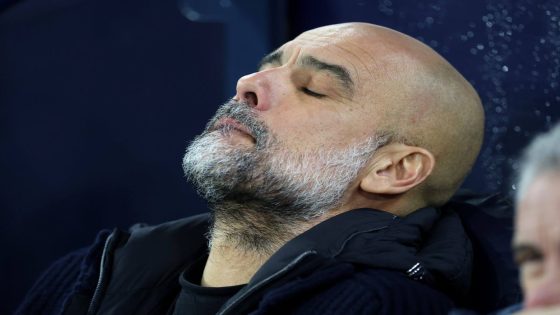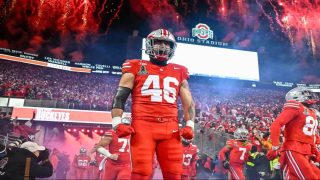With each passing defeat, the tried-and-tested arguments in favour of Manchester City turning this around are losing something from their foundations.
City are too good to keep playing this badly, we say. And they are in a way, because there have been spells in games of late when all seems relatively stable given the circumstances. But then all it takes is one setback and suddenly, the whole rotten structure comes crashing down.
City will go on a run, we insist. And they have, of sorts: a run of eight defeats in 11 games. Three years ago, defeat in a Manchester derby at the Etihad ended a 21-game winning streak. In this current guise, City look incapable of stringing even two together.
But Pep Guardiola, the finest coaching mind of the modern day, will find a solution, surely? After six titles in seven years, that still feels like the strongest argument of the lot. Guardiola has always been City’s failsafe, solving problems before they become a serious issue.
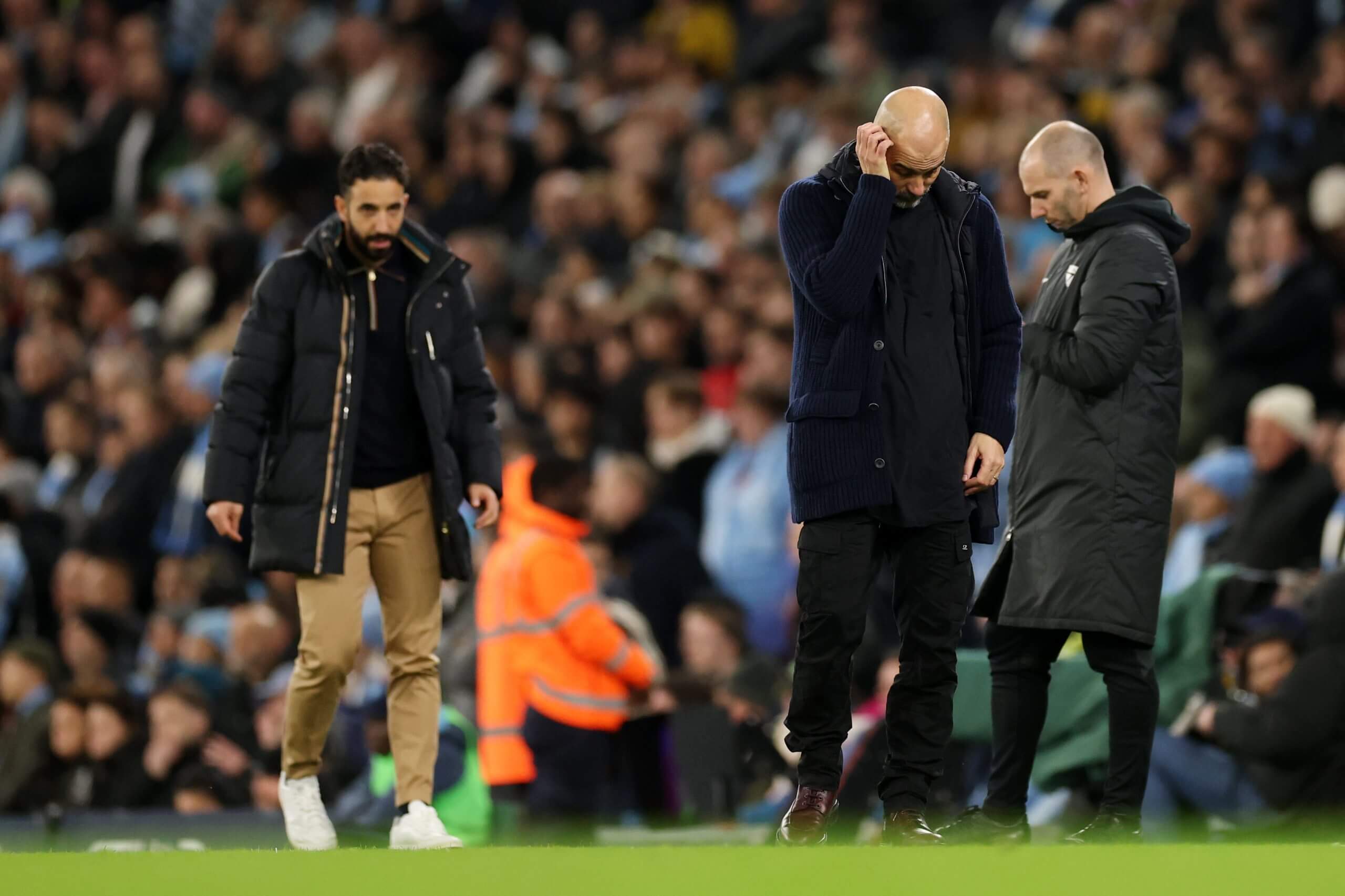
And so on Sunday, he came up with a solution, kind of. Faced with only three fit, recognised defenders for this 195th Manchester derby, Guardiola elected to play Mathues Nunes at left-back.
This was one of several options he soft-launched in Friday’s pre-match press conference, alongside moving a winger deeper or switching to a back three. Short of throwing teenager Jahmai Simpson-Pusey into the starting line-up, Nunes at left-back was always the likeliest move.
But as is typical of City at the moment, there was another sudden collapse, this miserable run was extended, and Guardiola’s attempt to fix things failed spectacularly.
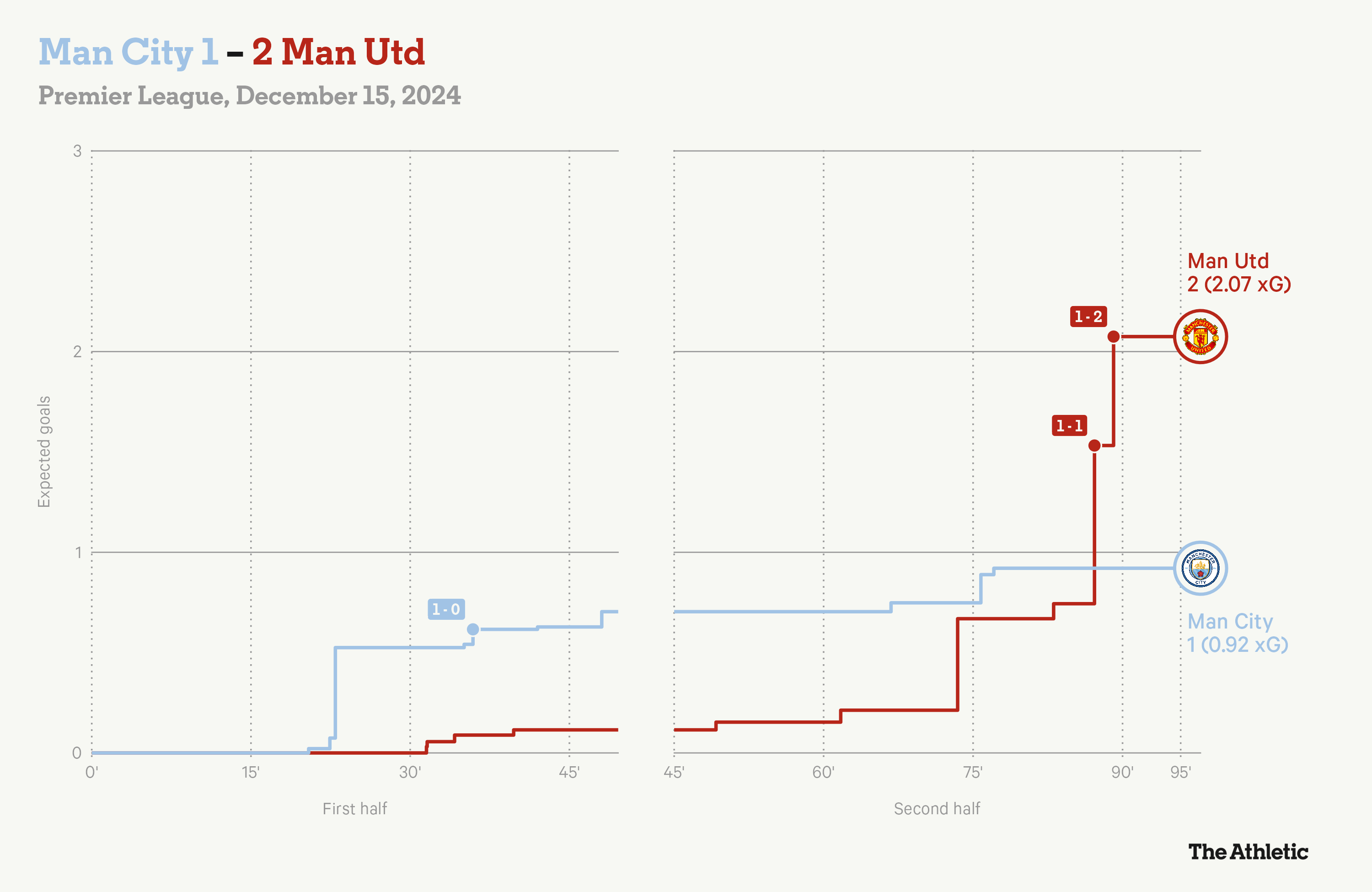
After Nunes’ backpass and concession of a 88th-minute penalty turned the derby on its head, Guardiola could only point the finger of blame at himself.
“I’m the boss, I’m the manager and I’m not good enough, it’s as simple as that,” he said post-match. “I have to find a way to talk to them, train them, the way they have to play, press and build-up, and I’m not good enough. I’m not doing well. That is the truth.”
We have all enrolled in the University of Barclays’ department of Guardiology over these last few weeks — hyper-analysing every word in his dealings with the media, every convulsion of his on the touchline, every scratch that marks his temple or breaks the skin.
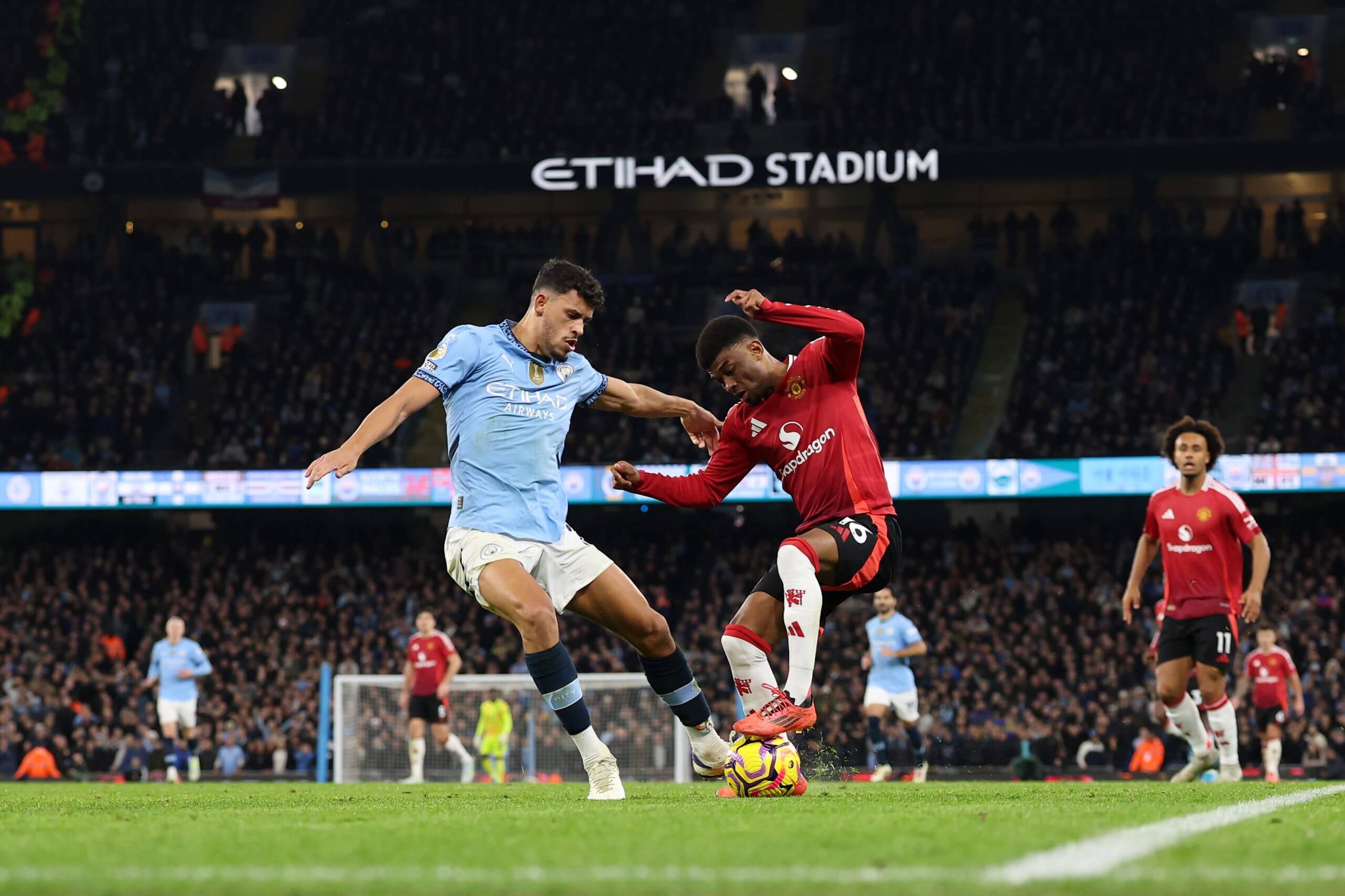
Take his interview with former team-mate Luca Toni earlier this week. Much of what Guardiola said about struggling to sleep and suffering from a dicky tummy before games was striking but was already out there somewhere in the public domain. In a way, it was nothing new.
Nor was this. Guardiola very rarely throws any of his players under the bus publicly. He is on record, in that Amazon documentary of six years ago, as saying he will expressly seek to defend them in press conferences. He is the one answerable to criticism. He is the one who will take responsibility for failings.
This admission that he is “not good enough” should be seen first and foremost as a device deployed by a manager who needs to protect his players now more than ever.
But the difficulty with casually passing it off that way is that in highlighting his own failings, Guardiola has a point.
This 11-game stretch dates back a month and a half and most City supporters and observers would agree that the underlying issues go back further. It has long moved past a blip and yet, Guardiola has not found a solution — not a working one, at least.
In the past, whether when left without a left-back, or when conceding too readily on the break, or when recalibrating the attack to accommodate Erling Haaland, Guardiola has nipped issues in the bud or worked his way around the issue eventually, often with a Premier League title as his reward when all is said and done.
He has always, at the very least, prevented whatever problems arise from blowing City’s season apart entirely. But that is now a real and present danger, if it has not happened already, because Guardiola is for once struggling for answers.
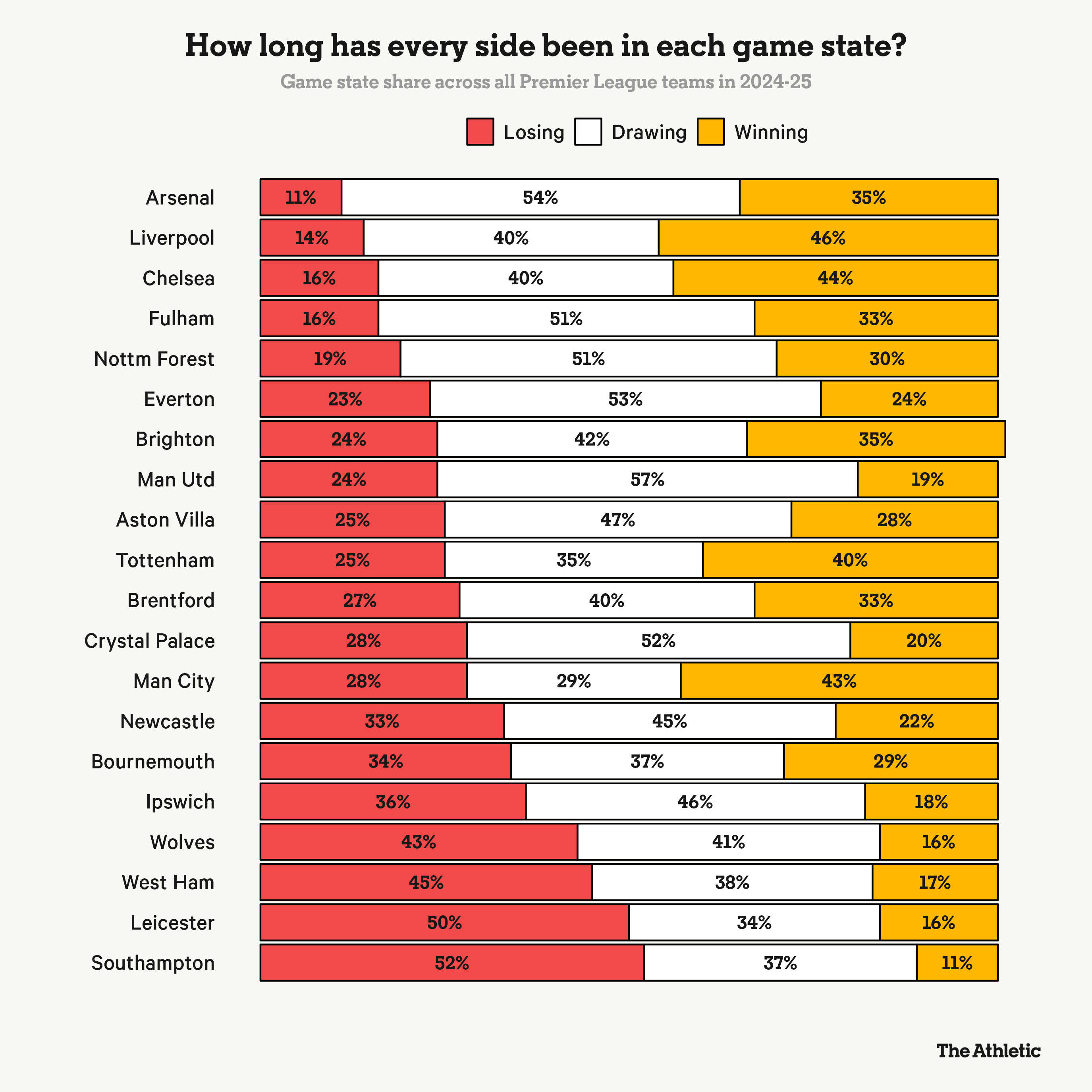
That is not necessarily a criticism. City’s issues are circuitous. The schedule has led to injuries. The injuries have led to fatigue. Fatigue has been exacerbated by the schedule. All of this is outside of his control, as he alluded to on Sunday.
“Always it’s been the same problem and it’s been fixed. Oh, it’s that player — it’s fixed, he doesn’t play,” he said. “But it’s not that (this time).”
Respite might be around the corner. There is time to recharge before Saturday’s visit to Villa Park. City only play four times over the next three weeks. John Stones’ return as a late substitute was welcome. But still, Guardiola reiterated that he is struggling.
“I am completely convinced by what I’m saying that I’m not good enough to find a way so that players find peace in their bodies and mind, so that it doesn’t matter what happens,” he reiterated. “I’m not good.”
Guardiola was explicitly asked if he really does doubt that he can turn this around. “I want it desperately,” he said. Well of course he does, but does he actually believe he can fix this? “With 8 defeats in 11? I’m here to try and I’ll try again and again. That is the reality.”
Is it? Are City’s problems really so great as to be too challenging for the greatest manager of his generation? Even now, in the depths of this slump, that feels hard to believe. If anyone can manage their way out of this mess, he can. But if Guardiola himself is starting to doubt that, the rest of us cannot be sure of it either.
(Header photo: Carl Recine/Getty Images)
